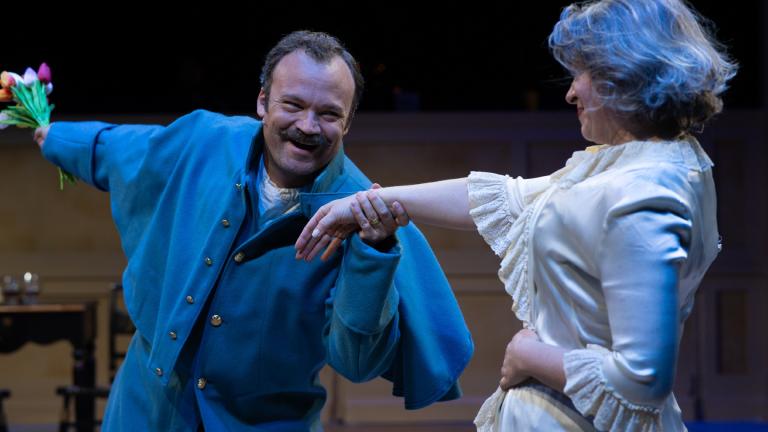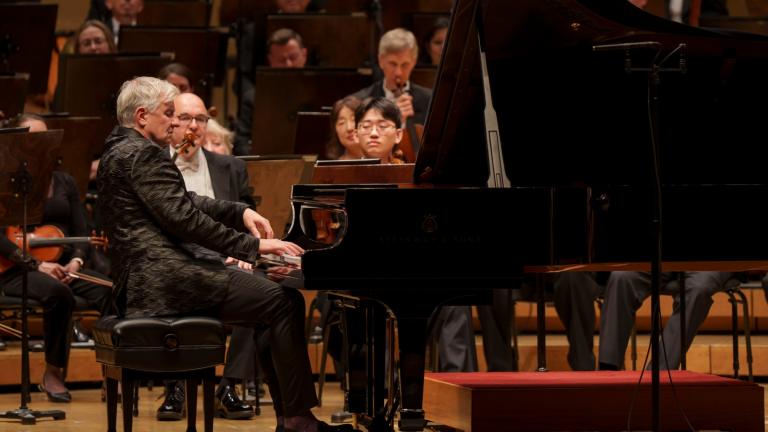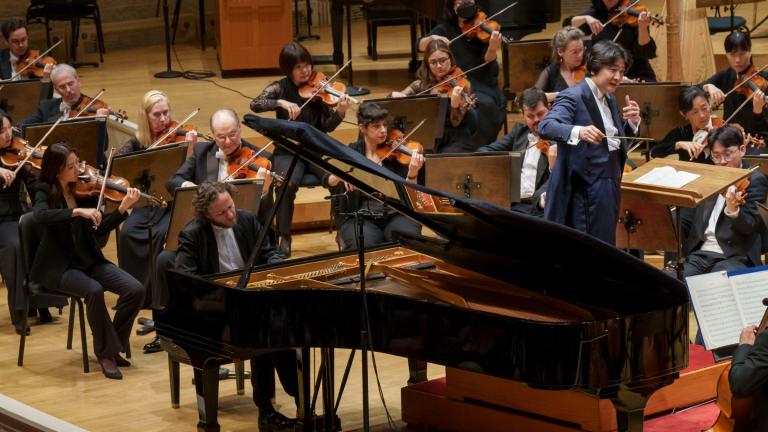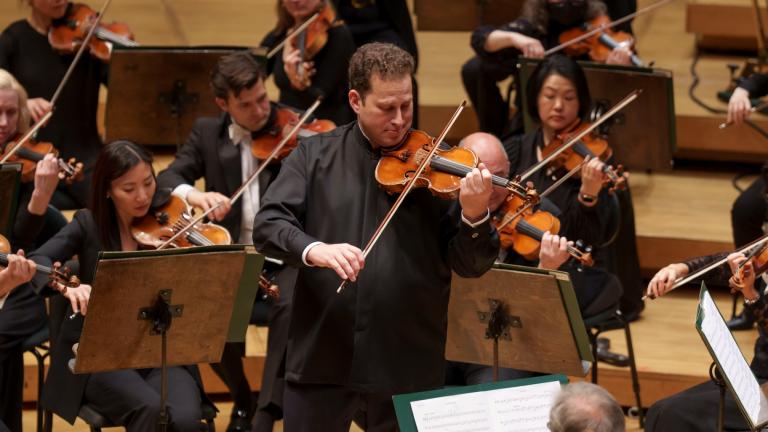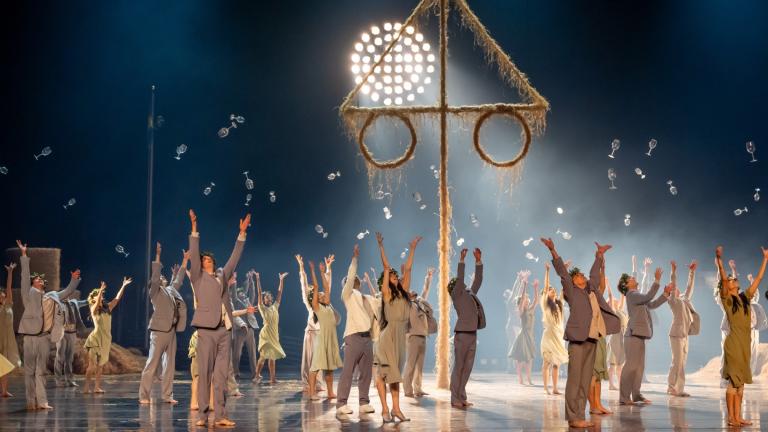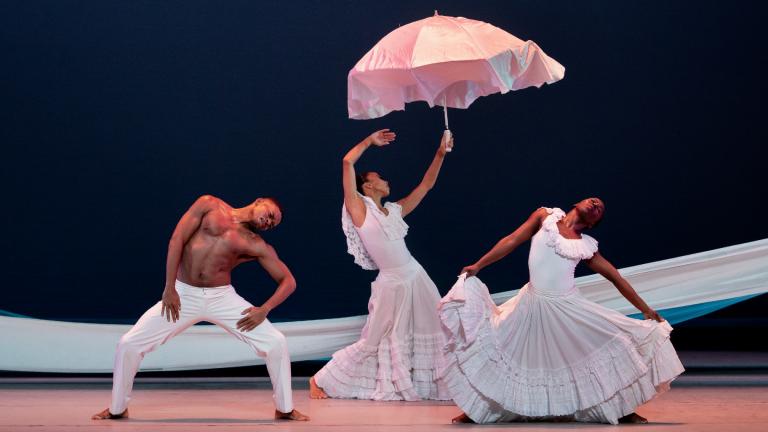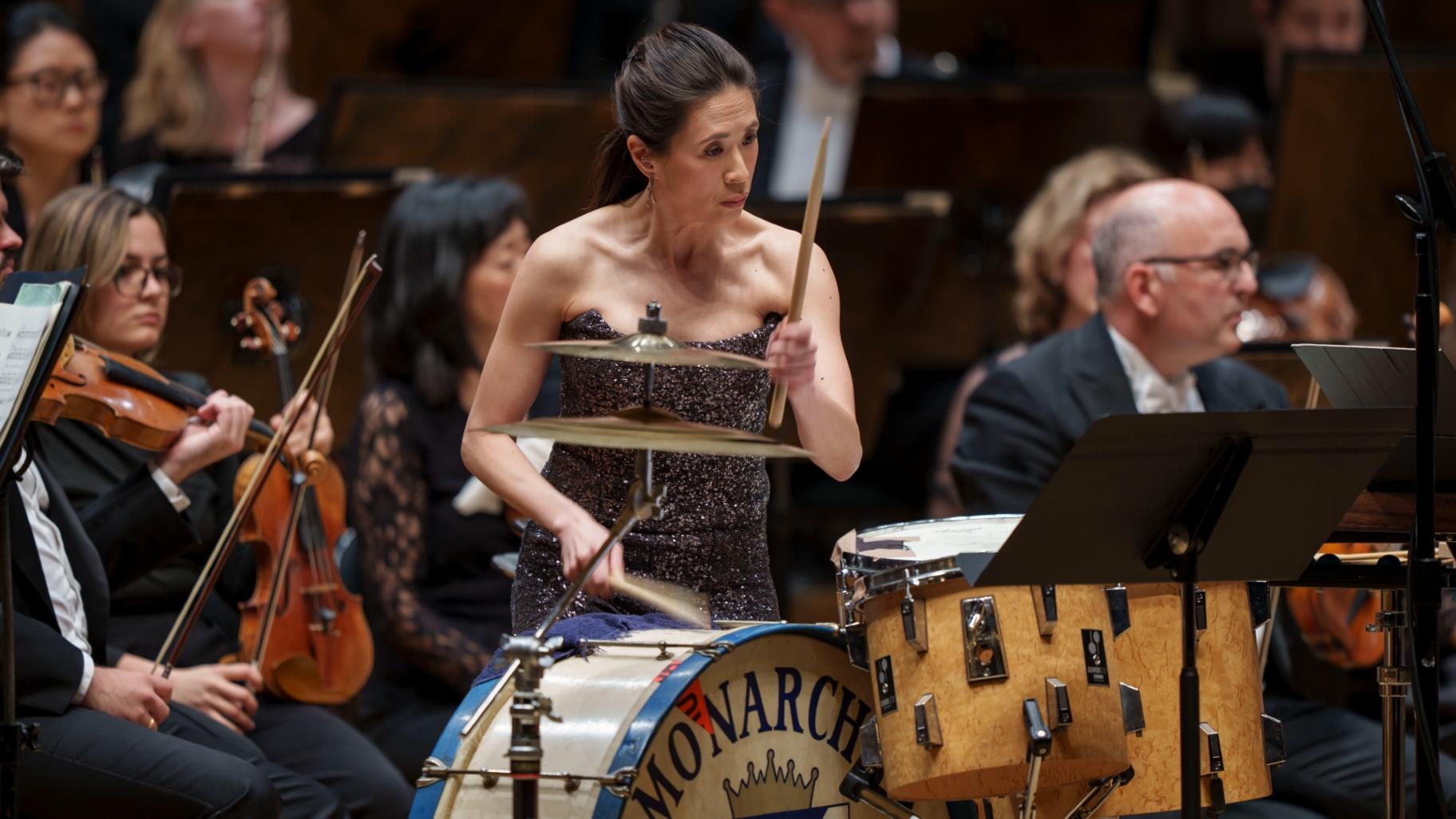 CSO principal percussionist Cynthia Yeh in the CSO-commissioned, world-premiere performance of Jessie Montgomery’s “Procession” with conductor Manfred Honeck and the Chicago Symphony Orchestra. (Todd Rosenberg)
CSO principal percussionist Cynthia Yeh in the CSO-commissioned, world-premiere performance of Jessie Montgomery’s “Procession” with conductor Manfred Honeck and the Chicago Symphony Orchestra. (Todd Rosenberg)
Cynthia Yeh, who has been the Chicago Symphony Orchestra’s principal percussionist since 2007, can make wonderfully expressive music by playing on nothing more than a bunch of clay flowerpots. (I’ve heard her do that.)
A petite beauty, Yeh is almost always on stage for the orchestra’s performances, and is perched behind a cluster of drums, chimes, keyboards, tambourines and countless other percussion instruments as she draws out the many different sounds that can notably accent, punctuate and dramatize a great piece of music.
On Thursday evening Yeh was at the center of “Procession,” a world-premiere CSO commission by the award-winning composer Jessie Montgomery, who is now in her final season as the orchestra’s incredibly productive Mead composer-in-residence. And these two women clearly stirred up an intriguing, richly dramatic work for the orchestra in which the bold, mood-shifting sounds of percussion (on a drum set, djembe/bass drum, vibraphone and glockenspiel) burst into an intriguing, dramatically varied 20-minute piece full of musical surprises. (In fact, it is difficult to imagine how this score has even been notated in many places.)
Yeh captured the work’s big, fast, drum-beating opening followed by the cellos and winds, with others on drums and timpani. And while she supplied wild rhythms on a giant drum — and at times deftly operated four sticks to capture the beats on both drums and other instruments — the rest of the orchestra tapped into the beauty of Montgomery’s sometimes lyrical, sometimes brassy, sometimes dreamy, sometimes march-like score that even includes the sound of church bells.
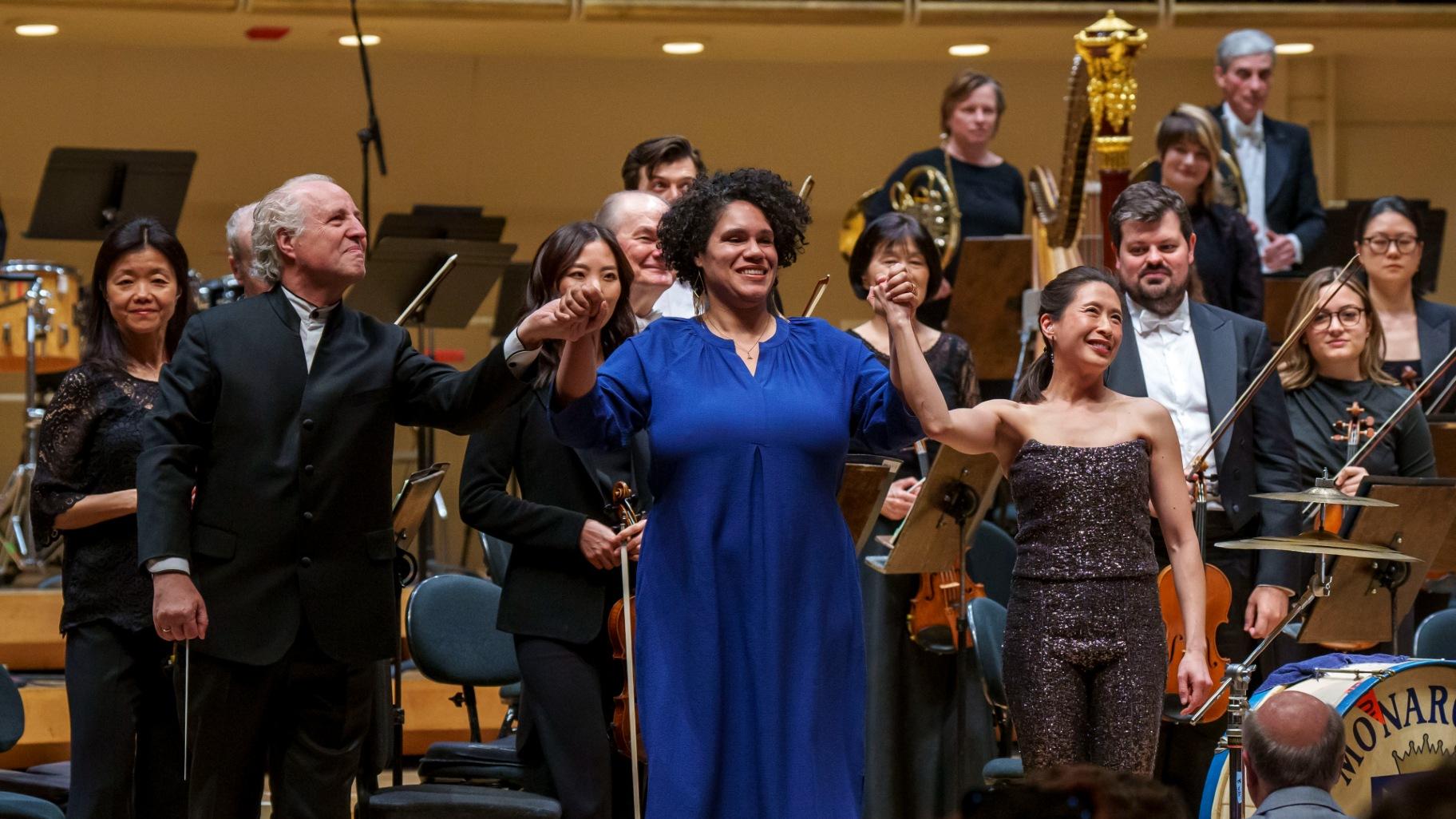 Conductor Manfred Honeck, CSO Mead Composer-in-Residence Jessie Montgomery and CSO principal percussionist Cynthia Yeh acknowledge audience applause following the world-premiere performance of Montgomery’s “Procession” with the Chicago Symphony Orchestra. (Todd Rosenberg)
Conductor Manfred Honeck, CSO Mead Composer-in-Residence Jessie Montgomery and CSO principal percussionist Cynthia Yeh acknowledge audience applause following the world-premiere performance of Montgomery’s “Procession” with the Chicago Symphony Orchestra. (Todd Rosenberg)
Deftly handling the many challenges of this opening piece on the program was the Vienna-bred guest conductor Manfred Honeck, currently the longtime music director of the Pittsburgh Symphony Orchestra. His subtly understated but impeccable style — graceful but not showy — was evident in the concert’s second half as he led the hour-long “Symphony No. 7 in E major” by Austrian composer Anton Bruckner that dates from 1884.
Bruckner’s work opens with a beautiful, romantic passage by the strings that is marked by both its lyricism and pathos. It then builds gracefully into a lush, all-around grandeur with the sound of the French horns, flutes and other winds, and then the full orchestra, in a score marked by many mood shifts — from the solemn to the darkly dramatic, and from a sense of calm to an intense frenzy.
The second of the symphony’s four movements opens quietly and from the heart, with a lovely melody whose beautiful singing sound then shifts into a big emotional build that eventually takes on a grandeur with a big burst from the timpani and cymbals.
The third movement begins with a notable speed, weighty power and lushness. A lot is going on, and the brass and timpani sound loudly before the lyrical strings take hold. The various sections of the orchestra often “answer” each other.
The fourth and final movement builds to an almost celebratory and playful sound, with each section of the orchestra getting its voice heard, and with a constant shift of moods taking you in many directions as the work moves to the end.
Frankly, not every moment of this symphony entranced me. In places it seemed as if Bruckner was filling his score with a variety of sounds rather than creating total cohesion. Yet listening to the CSO’s superb musicians never fails to flatter the composer.
This concert will be repeated at 7:30 p.m. Saturday at Orchestra Hall, 220 S. Michigan Ave. For tickets, visit cso.org or call 312-294-3000.
Follow Hedy Weiss on Twitter: @HedyWeissCritic

